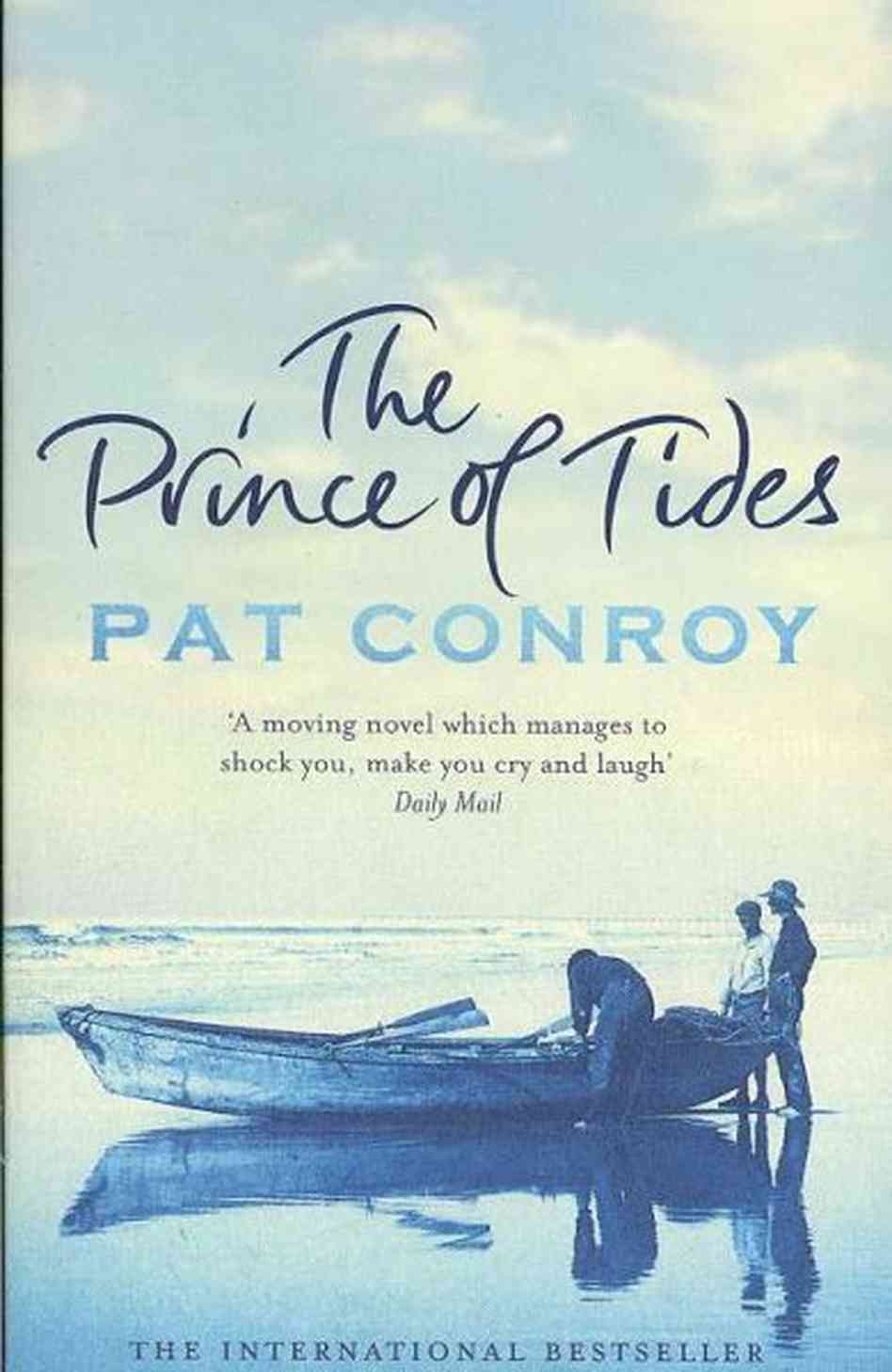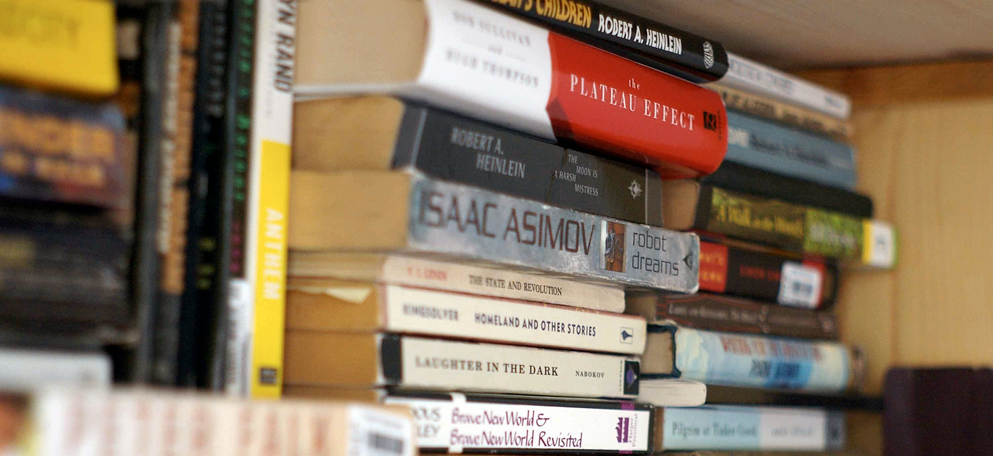
Pat Conroy has created a huge, brash thunderstorm of a novel, stinging with honesty and resounding with drama. Spanning forty years, this is the story of turbulent Tom Wingo, his gifted and troubled twin sister, Savannah, and their struggle to triumph over the dark and tragic legacy of the extraordinary family into which they were born.
Filled with the vanishing beauty of the South Carolina Low Country as well as the dusty glitter of New York City, The Prince of Tides is Pat Conroy at his very best.
Quotes and thoughts while reading:
"What do you do about the past? Why hasn't it harmed you like it's harmed me?"
"I don't think about it, Savannah," I said. "I pretend it never happened."
"It's over, sweetheart. We survived it. Anyway, we're adults now and we've got the rest of our lives to think about," Luke added.
"Until I figure out the past, I can't bear to think about the rest of my life. It fucked me up, Luke and Tom..." (p 44-45)
"Savannah's living proof that writing poetry and books causes brain damage." (p 50) It's funny, how looking back at things I liked while reading take on a whole new meaning after I've finished a book. This part doesn't really mean as much as it did in the beginning of the book, but it felt funny. It doesn't feel so funny now having finished.
"[My mother] and my father were oddly matched. Their life together was a thirty-year war. The only prisoners they could take were children. But there were many treaties and lulls, conferences and armistices signed before we could assess the carnage of that war. This was our life, our destiny, our childhood."(p 111) This book continued to strike chords, this quote in particular.
"But in times of hurt and loss I withdrew into a self-made enclosure of impenetrable solitude, and the women who tried to touch me there--all of them--drew back in utter horror as I wounded them again and again for daring to love me when I knew my love was all corruption. I was one of those men who killed their women slowly. My love was a form of gangrene withering the soft tissues of the soul." (p 193) Oh Pat/Tom, damn you for resounding so thoroughly within me. For breaching this topic via text in front of me. Will I always identify with this? Or will there come a point where I move past it?
"Do you love Dad, Tom?"
It took me several moments to reply and then I said, "Yes, I do. I do love the asshole. Do you love him, Savannah?"
She also took her time in answering, then said. "Yes, Tom. It's the strangest thing. I love him, too, and I don't have the vaguest idea why."
"Maye it's brain damage," I suggested.
"Maybe it's just the realization that he couldn't help who he was. By loving him, we're just being who we are and we can't help it either," she said. (p 283)
"I suppose that’s because I’m never sure of who I am. I’ve never been just one person. I’ve always tried to be someone else, live someone else’s life. I can be other people far too easily. I know what it’s like to be Bernard, Doctor. That’s why it affects me so when I see him suffering. I find it easy to be Savannah. I feel it when the dogs are on her. I want to take her sickness and lay it on my own soul. I don’t find it easy to be me because this strange gentleman is unknown to me. Now that nauseating revelation should satisfy even the most scrupulous therapist.” (p 343) I suppose these are the battles we all face, or at least I imagine that they are. Because to find such solidarity with a fictional character simply affirms the notion.
"But somewhere in that seven-second dash, resistance to integration weakened just a tiny bit in Colleton. And every time Benji Washington carried the ball that night, the southerners’ awesome love of sport won out over the bruised history that had brought the fastest human being in the American South into our backfield." (p 394)
"I loved my English courses with a passion and could not believe how lucky I was to be living a life where my job was to read the greatest books ever written. I began a long love affair with the English Department of the University of South Carolina, whose members could not believe a football player could write a standard English sentence without damaging the language. They did not know I had grown up in the same house as a sister who would become the best poet in the American South or that I studied each night for three hours with the girl who had written a single word down on her list of objectives: valedictorian." (p 528)
“Wingo,” he said as I adjusted my helmet, “do it again.”
I had turned golden that day and Coach Bass had uttered magical, incantatory words and I tried to remember where in my life I had heard that phrase before as I took a position on our thirty-five-yard line, shutting out the extraordinary noise of the crowd. As I watched the center snap the ball to the punter, I remembered that distant sunset when I was three and my mother had walked us out on the dock and brought the moon spinning out from beneath the trees of our island and my sister cried out in a small ecstatic voice, “Oh, Mama, do it again!”(p 530) Honestly, this whole section was just amazing. It brought the biggest smile to my face and it's always astounding to me to feel such joyful happiness while reading. There is a lot of sadness I felt while reading this book, and this stands out as the happiest moment for me while reading.
When he quieted down, I knelt beside his chair and I whispered, “This is what makes me crazy in this family, Dad. I don’t care that you hit us. I really don’t. That’s over and there’s nothing any of us can do about it. But I can’t stand it when I state a simple fact about this family’s history and I’m told by you or Mom that it didn’t happen. But you’ve got to know, Dad, and I’m saying this as a son who loves you, that you were a shit to Mom and a shit to your kids. Not all the time. Not every day. Not every month. But we never knew what would set you off. We never knew when your temper would explode and we’d have the strongest shrimper on the river knocking us around the house. So we learned to be quiet, Dad. We learned to tiptoe around you. We learned how to be afraid without making a sound. And Mom was a loyal wife to you, Dad. She would never let us tell a soul that you were hitting us. Most of the time, she was like you and would simply tell us it didn’t happen the way we remembered it.” (p 569) This, this right here is why this book hit me so hard. I had this conversation with my father. My sister was there, it was Easter, or Christmas, some holiday we were "required" to see him for. And Jessica and I broke down and had to ask him. Why? And his response? A mirror image of page 569. It's almost spooky.
Whew, it took a long time to get here. This was painful, and revelatory. Pat Conroy and I share something, that I'm sure many others do as well. And while I'm not sure I can recommend this book to others', it would serve them to better understand elements of my life, and to broaden their world view. Sometimes there are books, that make we want to write again. And this is one of them. I think this unearthed feelings I still have for my father, that I've been meaning to "write-out", to get into a medium to share. A book was played around with, but I think instead a series of poems, maybe 10 to 15 will be enough. The William series may grace the pages of this website in the near future, and maybe shared with other readers. For now, that's all. I've relived my childhood more times in the past two days than I have in the past two years, and while I don't want to just suppress that, I do want to refocus for a bit, and come back.
© JKloor 2016 Books
